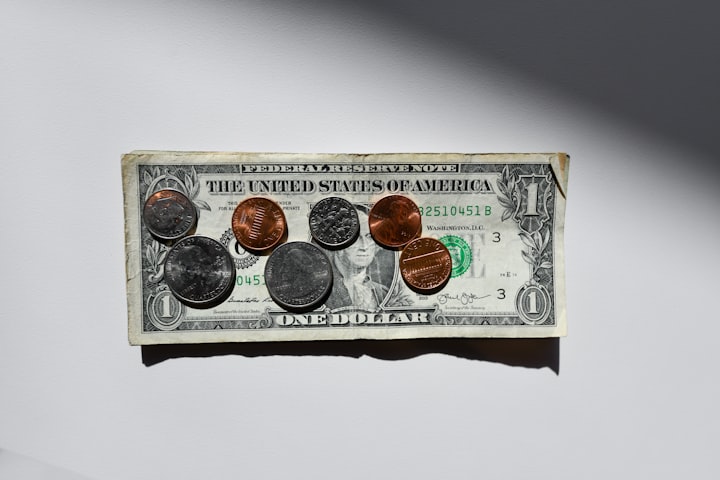The impact of inflation on your finances
Understanding the Effects of Inflation on Your Savings, Investments, and Overall Financial Well-Being

Inflation can have a significant impact on your finances, both in the short and long term. Inflation refers to the general increase in prices of goods and services over time, and its effects can be felt by individuals, businesses, and entire economies. In this article, we'll explore the impact of inflation on your finances and how you can protect yourself from its effects.
What is inflation?
Inflation is a measure of the rate at which prices of goods and services are increasing. It is measured by the Consumer Price Index (CPI), which tracks the prices of a basket of goods and services over time. When inflation is high, prices rise quickly, and the value of money decreases.
There are several causes of inflation, including an increase in demand for goods and services, a decrease in supply, and changes in government policies. Inflation can also be affected by external factors, such as changes in the global economy and natural disasters.
The impact of inflation on your finances
Inflation can have a significant impact on your finances, both in the short and long term. Here are some of the ways inflation can affect your finances:
- Decreased purchasing power
Inflation reduces the purchasing power of your money, which means you can buy fewer goods and services with the same amount of money. This can lead to a decrease in your standard of living, as you may not be able to afford the same level of goods and services as before.
For example, if the inflation rate is 2%, the value of your money will decrease by 2% over the course of a year. This means that if you had $100 at the beginning of the year, it would only be worth $98 at the end of the year.
- Increased cost of borrowing
Inflation can lead to an increase in the cost of borrowing money, such as loans and mortgages. This is because lenders need to charge higher interest rates to compensate for the decrease in the value of money over time.
If you have a variable rate loan, your monthly payments may increase if inflation rises. This can make it more challenging to repay your loan, especially if you're on a tight budget.
- Increased cost of living
Inflation can also lead to an increase in the cost of living, as the prices of goods and services rise. This can make it more expensive to maintain your standard of living, especially if you're on a fixed income.
For example, if the price of gasoline increases due to inflation, you'll need to spend more money on fuel to travel to work or run errands. Similarly, if the price of food increases, you'll need to spend more money on groceries.
- Impact on investments
Inflation can also affect your investments, such as stocks, bonds, and mutual funds. Inflation can decrease the real value of your investments, as the increase in prices reduces the purchasing power of your returns.
For example, if you invest $100 in a stock that earns a 5% return, and inflation is 2%, your real return is only 3%. This means that your investment is not keeping pace with inflation, and you're losing purchasing power over time.
Protecting yourself from inflation
While inflation can have a significant impact on your finances, there are several ways you can protect yourself from its effects. Here are some strategies you can use:
- Invest in inflation-protected securities
Inflation-protected securities, such as Treasury Inflation-Protected Securities (TIPS), are investments that are designed to keep pace with inflation. These investments pay a fixed interest rate, but the principal value is adjusted for inflation.
Investing in TIPS can help you maintain your purchasing power, even as prices rise. However, these investments may not be suitable for everyone, as they can be affected by changes in economic conditions and interest rates.
- Diversify your investments
Diversifying your investments can also help protect you from inflation. By spreading your investments across different asset classes, such as stocks, bonds, and real estate, you can reduce your exposure to inflationary risks.
For example, stocks can provide a hedge against inflation, as companies can raise prices to maintain their profits. Similarly, real estate investments can benefit from inflation, as rents and property values can rise with inflation.
However, it's important to note that diversification does not guarantee a profit or protect against loss in a declining market.
- Consider inflation when budgeting
When creating a budget, it's important to consider the impact of inflation. This means factoring in the expected increase in the cost of goods and services over time, and adjusting your budget accordingly.
For example, if you expect the cost of groceries to increase by 2% over the next year, you can adjust your budget to account for the additional expenses.
- Negotiate your expenses
Another way to protect yourself from inflation is to negotiate your expenses, such as your rent or utilities. By negotiating a lower rate, you can reduce the impact of inflation on your budget.
For example, if your rent is set to increase due to inflation, you can try negotiating with your landlord for a lower rate or finding a new place to live with a lower rent.
Conclusion
Inflation can have a significant impact on your finances, reducing your purchasing power and increasing the cost of borrowing and living. However, by investing in inflation-protected securities, diversifying your investments, considering inflation when budgeting, and negotiating your expenses, you can protect yourself from the effects of inflation.
It's also important to stay informed about the current inflation rate and economic conditions, as this can help you make informed financial decisions. By taking a proactive approach to managing inflation, you can maintain your standard of living and achieve your financial goals over time.
About the Creator
Billionaire hustler
Embrace the struggle, push yourself to new heights, and never give up. Warriors rise up and fight back. The power to change your life is in your hands. Together, we are unstoppable.






Comments
There are no comments for this story
Be the first to respond and start the conversation.